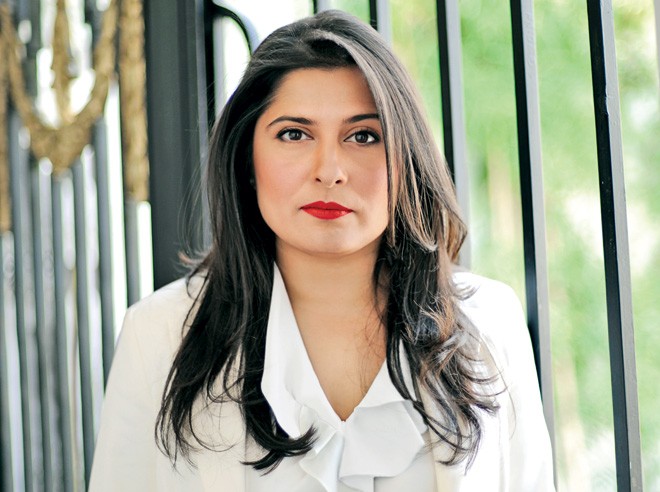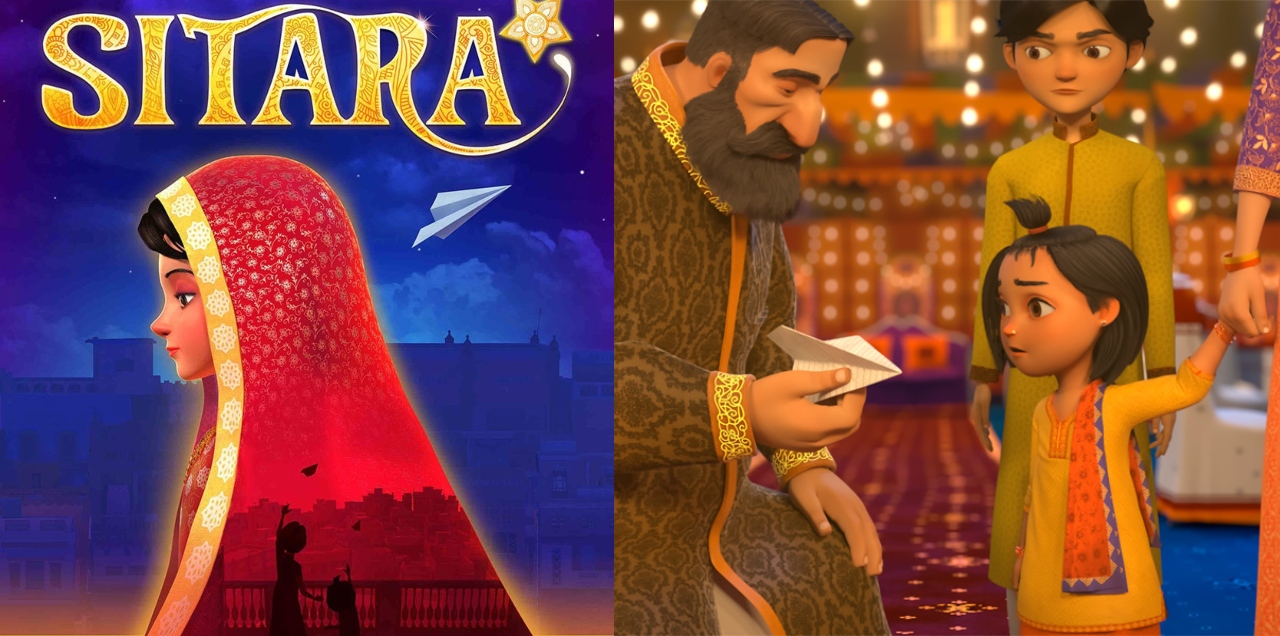Sharmeen Obaid Chinoy recently premiered her much-anticipated animated short film ‘Sitara: Let Girls Dream’ at Nueplex cinema, DHA. The film has also made its way to popular online streaming site Netflix. It is the first time any Pakistani produced film has made its way to Netflix.
Notable names from the fraternity like Ayesha Omar, Sanam Saeed, Zahid Ahmed, Ushna Shah, Adeel Hussain and many others attended the film premiere in Karachi.
The story of ‘Sitara’ revolves around the idea of forced child marriages in Pakistan. The movie had been in the works for the last two years and was showcased at various international platforms.
Finally, it has been released, in partnership with Netflix, becoming the first-ever Netflix original from Pakistan. The short film has also received international acclaim, winning ‘Best Produced Screenplay’, ‘Best Music Score’ and the ‘Humanitarian Award’ at the Los Angeles Animation Festival 2019.



source: The News
It is about a 14-year-old young girl Pari who dreamed of becoming a pilot. Her father, however, arranges her marriage with a much older man and she is forced to oblige. The father realizes his mistake only after he has married his daughter off. During the ending credits, they show the father encouraging the younger daughter who then ends up becoming a pilot.
Recently, a thoughtful prayer of a woman who is about to get married was released in the form of a song ‘Dua-e-Reem‘. Actress Mahira Khan featured in the song who conveyed the message of every Pakistani women through a song.
Child marriages in Pakistan
However, In Pakistan, 21% of girls are married before their 18th birthday and 3% are married before the age of 15. According to UNICEF, Pakistan has the sixth-highest number of absolute child brides in the world.
The median age of marriage is lowest in rural areas and in Gilgit Baltistan. Young girls who marry are more likely to drop out of school than other girls. They face greater pregnancy-related health risks than women, and their babies are more likely to have health problems. Married girls are more likely to face domestic violence than a woman who marries later. Additionally, child marriage sinks families deeper into poverty.
A study estimates that ending child marriage in Pakistan could lead to a $6229 million rise in earnings and productivity.
However, recently under a new bill passed in the Pakistani Senate, the minimum age of marriage for females was increased to 18 years. Contravention is made punishable with a fine of Rs 1000 and imprisonment of only one a month. The shallow punishment of a mere one month of imprisonment and the fine of Rs 1000 speaks for the incompetence of our current and previous governments when it comes to policymaking on such big issues.















